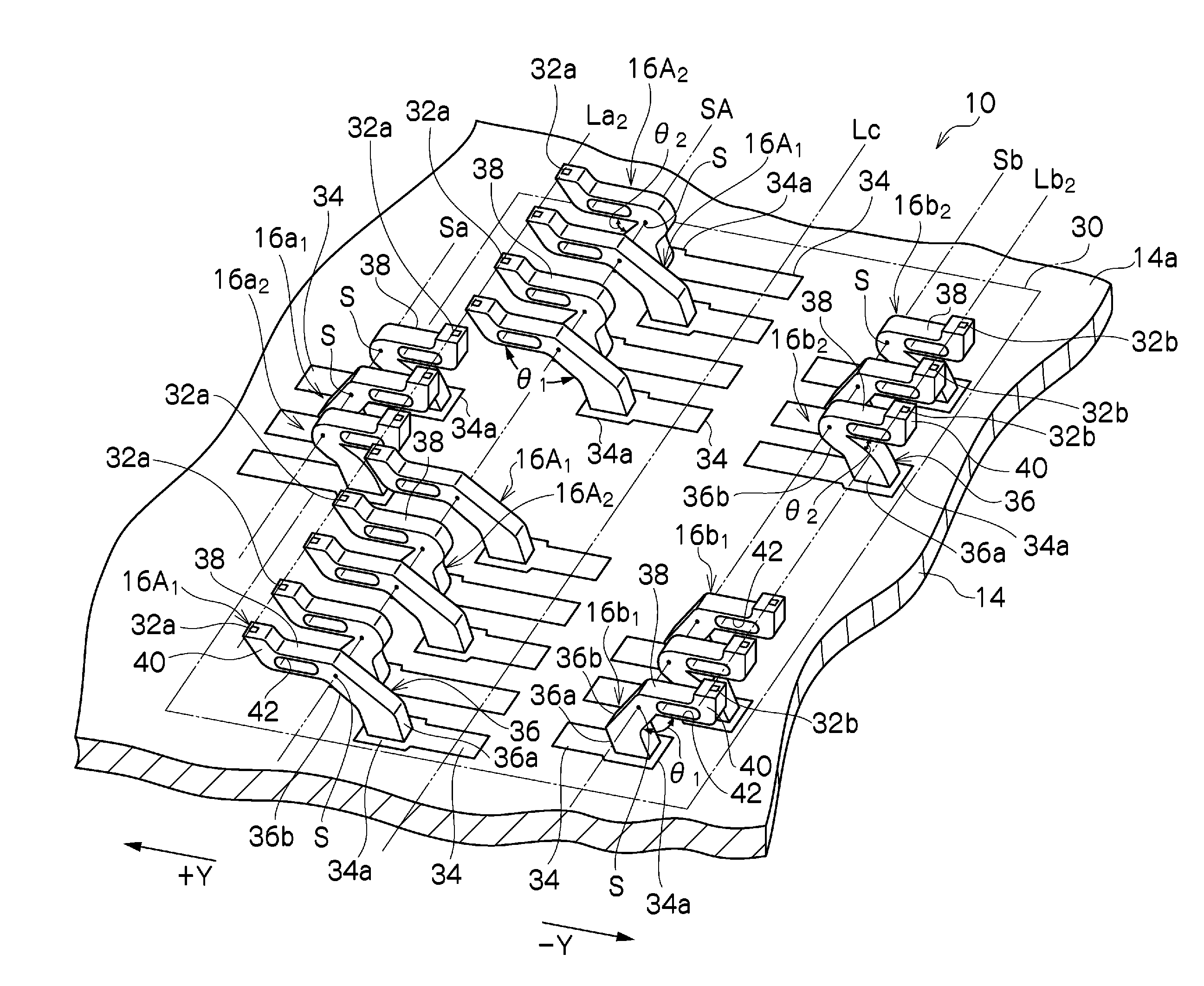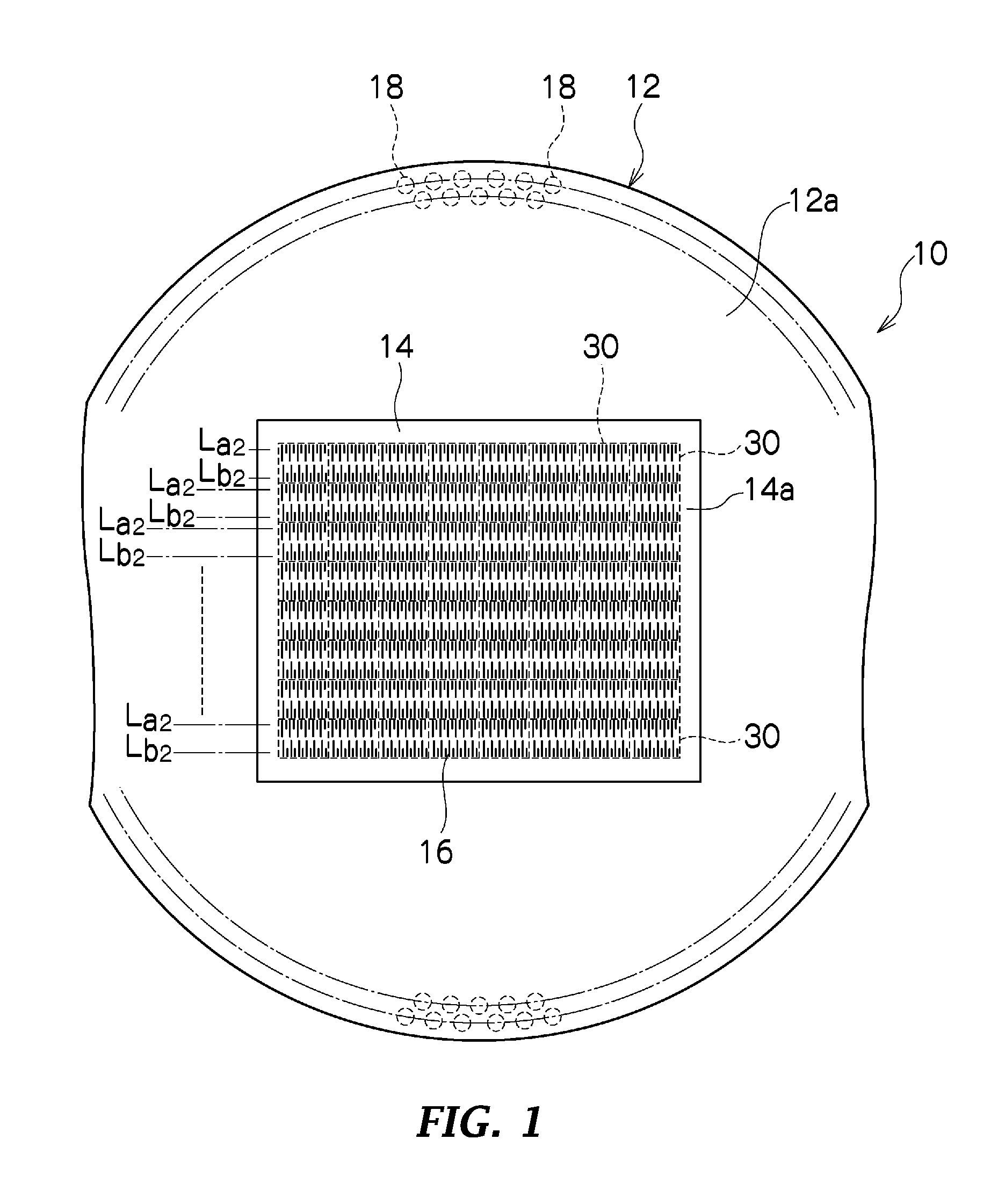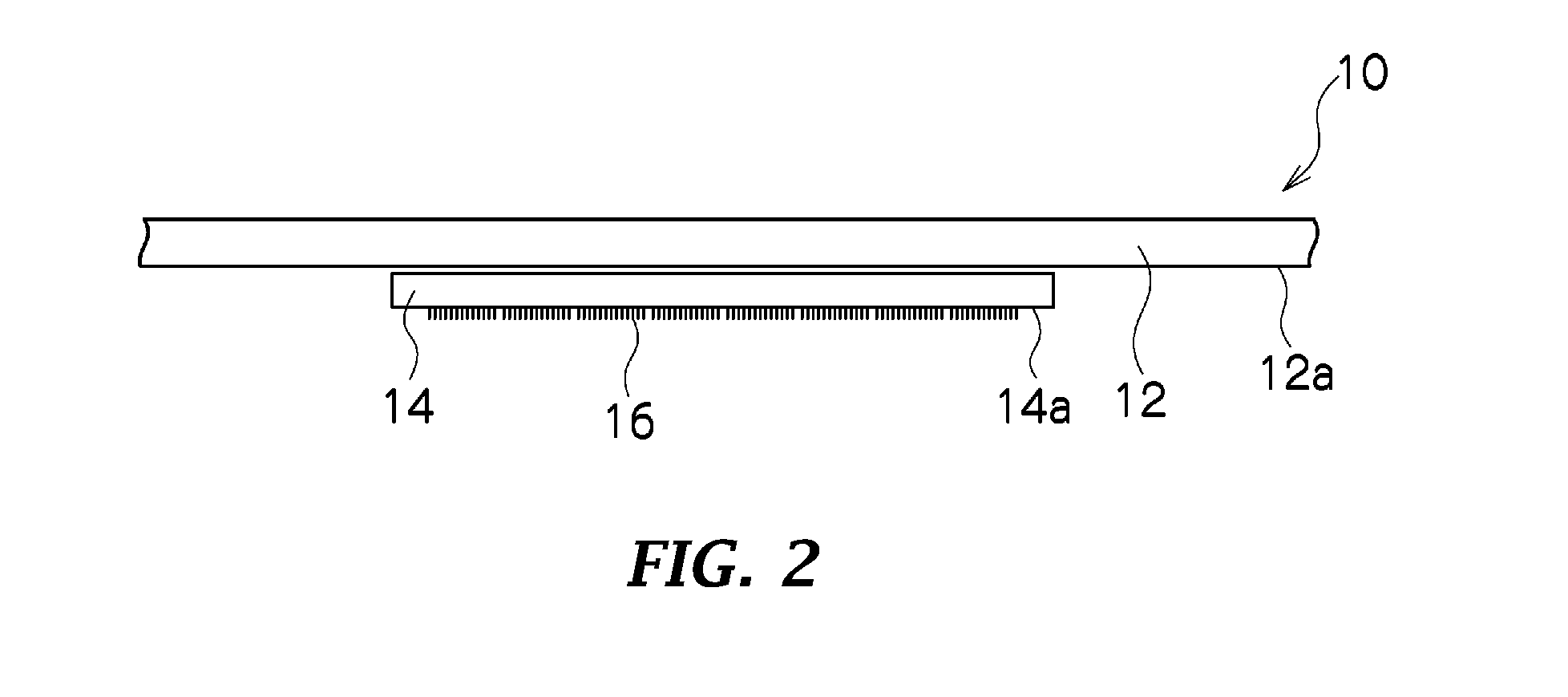Probe assembly
- Summary
- Abstract
- Description
- Claims
- Application Information
AI Technical Summary
Benefits of technology
Problems solved by technology
Method used
Image
Examples
Embodiment Construction
[0031]The probe assembly 10 according to the present invention comprises, as shown in FIGS. 1 and 2: a generally circular wiring board 12; a probe base plate 14 having a rectangular planar shape, attached to the central portion of the underside 12a of the wiring base plate; and a plurality of probes 16 attached to one face 14a of the probe base plate. The probes 16 are, as mentioned later, attached to an anchor portion of the corresponding electrically conducting path formed on one face 14a of the probe base plate 14. The probe base plate 14 is secured to the wiring board, making the other face opposite to the one face 14a where the probes 16 are provided oppose to the underside 12a of the wiring board 12.
[0032]The wiring board 12 includes, as is well known heretofore, an electrically insulating board in which an electrically conducting path (not shown) is incorporated. As shown in FIG. 1, a plurality of tester lands 18 as connection ends to a tester body (not shown) are provided in...
PUM
 Login to View More
Login to View More Abstract
Description
Claims
Application Information
 Login to View More
Login to View More - R&D
- Intellectual Property
- Life Sciences
- Materials
- Tech Scout
- Unparalleled Data Quality
- Higher Quality Content
- 60% Fewer Hallucinations
Browse by: Latest US Patents, China's latest patents, Technical Efficacy Thesaurus, Application Domain, Technology Topic, Popular Technical Reports.
© 2025 PatSnap. All rights reserved.Legal|Privacy policy|Modern Slavery Act Transparency Statement|Sitemap|About US| Contact US: help@patsnap.com



